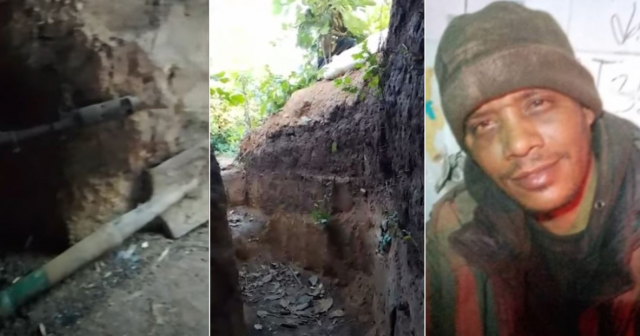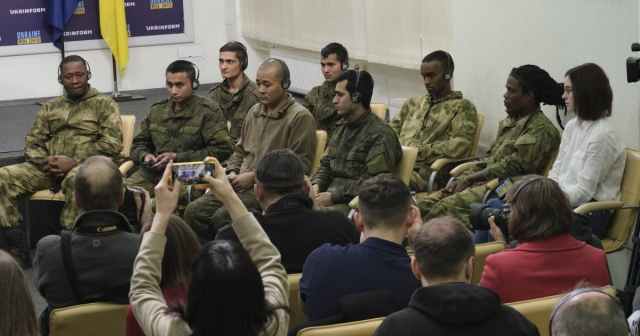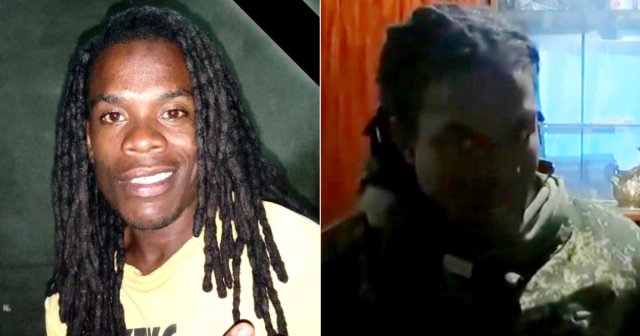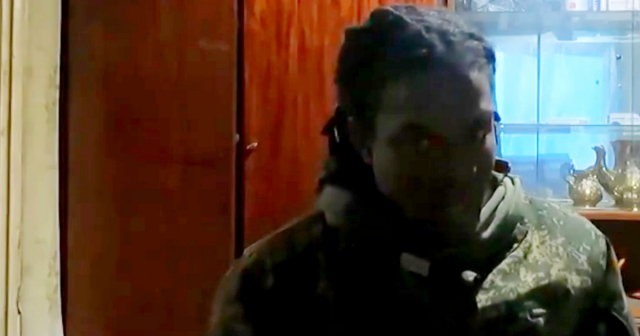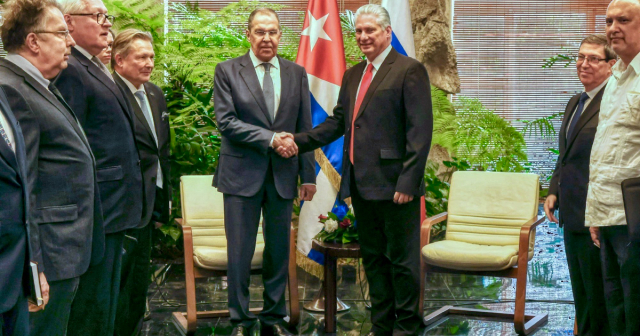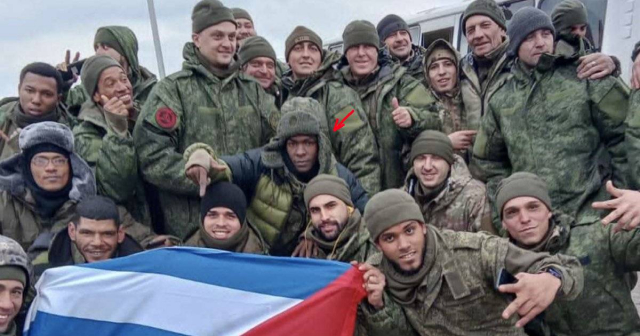An officer of theRevolutionary Armed Forces (FAR) who claimed to be in Russiacontradicted the statements of the Cuban regime about a “human trafficking network” and assured that the 90 Cubans under his command left the Island with full knowledge of the authorities.
“None of us left the country illegally,” said the FAR second lieutenant.Lazaro Gonzalez in statements to the program 'A Fondo'America Radio. Both he and the 90 Cubans under his command were recruited in Cuba by an illegal plot, but by signing a contract with the Russian army.
As evidence of the legality of the operation, González emphasized thatCuban immigration authorities did not stamp his passport upon leaving Cuba, an irregularity that he explained as a procedure so that there is no record of the departure of former soldiers bound for Russia.
González, a native of Güines, Mayabeque province, lived in Cuba at the time of enlisting in the Russian army.It was in Cuba where he signed the contract with the army, and clarified that he read it in Spanish and was aware of its terms. He denied that it reached him throughthe two women who mention other sources as internet recruiters, but declined to say the name or the institution through which she received the offer from Russia.
Asked about the MINREX statement and the editorial ofGranmaon “the neutralization and dismantling of a human trafficking network that operates from Russia to incorporate Cuban citizens living there, and even some from Cuba,”He described these statements as “lies.”.
Second lieutenant and sniper instructor,González claimed to have been an active officer from 2006 to 2014, and that he even spent “courses with the Russians at the Antonio Maceo Military Academy cadet school, in Ceiba del Agua, province of Artemisa.
Now he claimed to be the “company leader in charge of all Cubans” and maintained that “they do not exceed 90.” Likewise, he stressed that everyone under his command “was aware that they were going to participate as part of the Russian army,”who have not received physical abuse and that they have been paid on time.
Gonzáles and his comrades-in-arms left for Cayo Coco. He said they all have military knowledge because they passed the “service,” they all read the contract in Spanish and underwent medical examinations once in Russia.And he once again insisted that the immigration authorities did not put the stamp on his passport..
“As the Russian army occupies areas in Ukraine, what we Cubans do is support the army in those cities and in those areas that are occupied, that's all. There has been no physical abuse and there have been military training classes in Ryazan. No one has had their passport or immigration card taken away,” clarified the former Cuban military officer.
The second lieutenant acknowledged that he enlisted “for the benefit of himself and his family” andevaded answering the question of whether the Cuban regime knows about these contracts, although he recognized that they have absolute control over the citizens.
Asked about the two 19-year-olds who made thedenounces his recruitment as a “scam”, González considered that “every Cuban who is here knows why he came. “Everyone who signs the contract is already a soldier and must be governed by Russian military laws.”
In that sense, the Russian army could consider the statements offered by the two young men to the media as treason. But González estimated that "procedures are being carried out to remove the young people from Ukraine so that the Cuban government does not take measures against them."
“That depends on the Cuban government,” said the commanding officer of the Cubans in Russia, who considered these statements as “defamation” and affirmed that so far “there are no Cuban deaths” on the battlefield, and that they They are behind the third line of combat, although exposed to the response of the Ukrainians when they carry out their work in support of the invasion of Ukrainian territory.
His words were confirmed by another Cuban under his command.
“See if they [the Cuban government] knew that when we left Cuba, the people at Customs did not take our passports,He didn't put a stamp on our passport when we left the country.. The only proof I have that I left the country is the ticket,” he said.Ernesto González Martínez.
Asked if he considered himself a “mercenary,” as the regime states in its official version, González Martínez asked in turn: “Weren't those who went to Angola mercenaries? Weren't those who went to Bolivia mercenaries? “Weren't those who went to Vietnam mercenaries?”
“So, we, who are here to help our families, are we mercenaries because we have money?” said the Cuban, leaving in the air a question that does not stop spinning in the heads of the authorities, who are looking for how emerge successfully from a matter that only becomes more complicated and generates uncertainty about the future scenarios of the diplomatic relations of the totalitarian regime in Havana.
What do you think?
SEE COMMENTS (5)Filed in:

